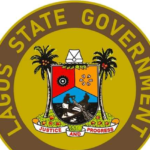
The Court of Appeal on Wednesday fixed March 7, 2023 to hear an application filed by the leader of the proscribed Indigenous People of Biafra, Nnamdi Kanu.
News Agency of Nigeria reports Kanu is seeking to be joined in the appeal challenging the proscription of the group by the Federal Government.
Kanu had on September 5, 2022 filed the joinder application as an interested party in the Jan. 18, 2018 judgment of the Federal High Court in suit No: FHC/ABJ/CS/871/2017, that proscribed IPOB.
Although hearing in the application was scheduled for Wednesday, the appellate court did not sit and the matter was fixed until March 7, 2023.
Lead counsel to Kanu, Chukwuma-Machukwu Ume, SAN, who filed the processes said his client was appealing the judgment of the trial court which was rendered without hearing from him.
Kanu who expressed dissatisfaction with the judgment has proposed to challenge it on appeal.
In his proposed grounds of appeal, he contended that the trial judge erred in law when he ruled that:
“The Attorney-General in his application ex parte exhibited documents showing the existence of threat to national security by the Respondent/Applicant and I accordingly made the order.
“By the order of 20th September 2017 prescribing the Respondent/Applicant organisation am of the firm view that the right of the Applicant to private and family life freedom of expression, right to peaceful assembly and freedom of movement have not been infringed upon.
“I also hold that the Applicant’s right to fair hearing has not been violated by the grant on the Ex parte order,” he said.
On this ground, Ume argued that the ex parte order of proscription of the appellant and its listing as a terrorist group violated applicant’s constitutional right to fair hearing.
When the 2nd respondent, consequent upon the said order declaring and proscribing the Appellant as a terrorist group, arrested, detained and is currently prosecuting the Applicant on charges of terrorism and as a member/leader of the appellant on six counts solely predicated on the said Order pending on appeal.
That charging the applicant with the offences enumerated above, which offences are wholly predicated on the said ex parte order, and upon which applicant was not on notice, violated applicant’s constitutional rights.
This included, particularly, his right to fair hearing.
Section 36(1) of the Constitution of the Federal Republic of Nigeria (as amended) [hereafter the ‘Constitution’] provides as follows:
“In the determination of his civil rights and obligations, including any question or determination by or against any government or authority, a person shall be entitled to a fair hearing within a reasonable time by a court or other tribunal established by law and constituted in such a manner as to secure its independence and impartiality.”
In addition, he stated that the trial court misdirected itself in law and thus occasioned a grave miscarriage of justice that adversely affected the applicant when it held that:
He added that the words ‘the judge in chambers may on an application made by the Attorney-General …’ presupposes that the application is to be made Ex Parte.
The learned trial judge lifted the words in small close quotes from Section 2 (1)(c) of the Terrorism Prevention (Amendment) Act, 2013 which had used ‘judge in chambers’, not ‘ex parte’ in enacting the procedure for obtaining an Order of proscription and declaration of an entity as a terrorist organization.
According to him, the clear divergence between ‘judge in chambers’ and ‘ex parte’, the current and trite law is as follows:
“The plain meaning of ex parte is not one and the same with ‘judge in chambers’.
“Whereas, ex parte carries elements of one party only being heard even in open court (not necessarily in chambers), a judge-in-chambers does not mean that only one party would be heard.”





